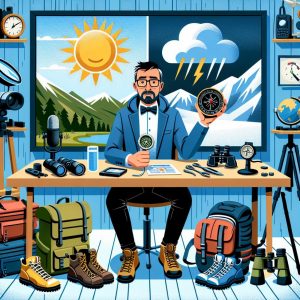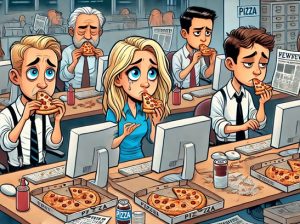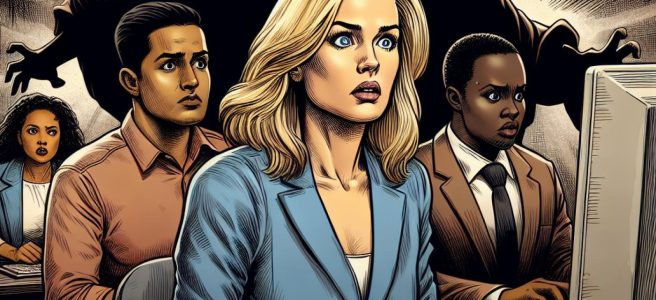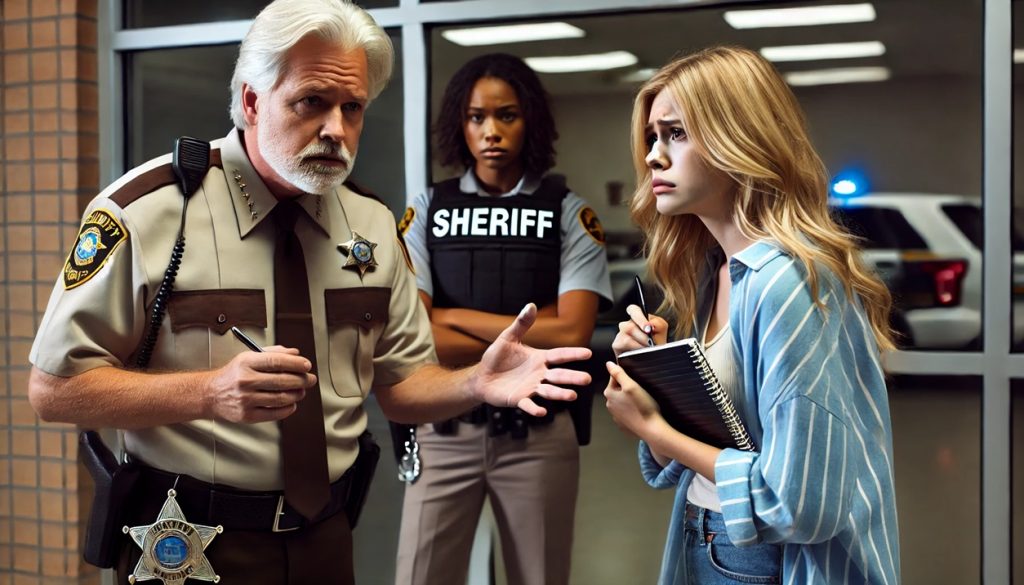Podcast: Play in new window | Download (Duration: 15:08 — 13.9MB)
In this episode of “Journalism 101 with Tripping Raul” titled “Save Your Life: Essential Skills for Wilderness Survival,” host Tripping Raul begins by indicating that this might be the last episode for a while unless she can gather some colleagues and friends to share their stories in future episodes. The episode centers on a survival piece she wrote in 2004 for a major metro daily, focusing on what to do if one is lost in the wild.
 Tripping Raul starts by providing some ambiance about her current setting and the sounds in her office. She then transitions into reading and discussing the article which features advice from Don Davis, a wilderness survival instructor. Davis emphasizes the acronym “STOP”: Sit, Think, Observe, Plan, which is crucial when one realizes they are lost. He highlights the importance of mental preparedness, proper equipment, and knowledge in survival situations.
Tripping Raul starts by providing some ambiance about her current setting and the sounds in her office. She then transitions into reading and discussing the article which features advice from Don Davis, a wilderness survival instructor. Davis emphasizes the acronym “STOP”: Sit, Think, Observe, Plan, which is crucial when one realizes they are lost. He highlights the importance of mental preparedness, proper equipment, and knowledge in survival situations.
The host goes on to explain various tips and strategies for wilderness survival shared by Davis, including the necessity of carrying appropriate winter gear, constructing a shelter, handling dehydration, and the effective use of tools like knives, folding saws, and shovels. Davis also discusses survival kits, emphasizing the need for a personalized and well-thought-out pack rather than a pre-made kit from stores.
Additionally, building a fire and maintaining visibility for potential rescue are discussed. Davis suggests using colorful tarps and protective clothing to make oneself more visible in the wilderness and presents detailed advice on creating fire starters and selecting signaling equipment.
 Toward the end of the episode, Tripping Raul shares a poignant personal anecdote connected to the theme of the article about a man lost in the wilderness after a snowstorm, reinforcing the importance of the survival information provided. It occurred one week after the article was published — if only the man had read it and taken it to hear.
Toward the end of the episode, Tripping Raul shares a poignant personal anecdote connected to the theme of the article about a man lost in the wilderness after a snowstorm, reinforcing the importance of the survival information provided. It occurred one week after the article was published — if only the man had read it and taken it to hear.
Tripping Raul concludes by recommending listeners check out the survival kit list at the end of her article and promises to return to the podcast once she has more content. She ends with a farewell, leaving the next episode’s timing unspecified.
YES! I checked and they found Rudi Moder in November of 2021! I’ll post the story below.
Resources
Four-Way STOP, Dec. 29, 2004
You’ll note it says “Special to the News” in the byline. This is because I had already switched to a communications job at a higher education institution at that point, but I still loved the paper and enjoyed contributing!
Remains found in Colorado National Park believed to be those of a German man who went missing nearly 40 years ago, CNN, Nov. 5, 2021
— 30 —


 Furthermore, Raul shares personal stories to illustrate the weight of these experiences. She recounts being at a family dinner when she was urgently called back to the newsroom for the verdict in the Oklahoma City bombing case and expresses the personal impact of watching a fire endanger her husband’s family ranch.
Furthermore, Raul shares personal stories to illustrate the weight of these experiences. She recounts being at a family dinner when she was urgently called back to the newsroom for the verdict in the Oklahoma City bombing case and expresses the personal impact of watching a fire endanger her husband’s family ranch.
 The episode starts with Raul setting the scene of her past work environment where the publisher, a self-proclaimed born-again Christian, imposed his radical beliefs on the staff. This included banning horoscopes from the newspaper, labeling them as “satanic,” and unreasonable firings based on minor infractions or personal beliefs contrary to his own, such as firing a reporter for being Wiccan and another for decorating her desk with mini pumpkins for Halloween.
The episode starts with Raul setting the scene of her past work environment where the publisher, a self-proclaimed born-again Christian, imposed his radical beliefs on the staff. This included banning horoscopes from the newspaper, labeling them as “satanic,” and unreasonable firings based on minor infractions or personal beliefs contrary to his own, such as firing a reporter for being Wiccan and another for decorating her desk with mini pumpkins for Halloween. Despite the challenging environment, the situation took a turn when Raul, after her dismissal, decided to help her wrongly terminated colleagues by providing testimony and filling out paperwork for the Equal Employment Opportunity Commission (EEOC). This initiative eventually led to the EEOC reaching a settlement with the publisher, which benefited Raul financially, helping her clear debts, support her family, and complete her education.
Despite the challenging environment, the situation took a turn when Raul, after her dismissal, decided to help her wrongly terminated colleagues by providing testimony and filling out paperwork for the Equal Employment Opportunity Commission (EEOC). This initiative eventually led to the EEOC reaching a settlement with the publisher, which benefited Raul financially, helping her clear debts, support her family, and complete her education.
 The narrative takes a grim turn when Raul mentions that Sandra’s body was eventually discovered by a shepherd in a secluded area, not by law enforcement. The sheriff admitted that Sandra had gone to a restaurant to apply for a job, where she was last seen accepting a ride home from an unknown individual. This ride ended tragically when Sandra was kidnapped, attempted to be raped, and then strangled.
The narrative takes a grim turn when Raul mentions that Sandra’s body was eventually discovered by a shepherd in a secluded area, not by law enforcement. The sheriff admitted that Sandra had gone to a restaurant to apply for a job, where she was last seen accepting a ride home from an unknown individual. This ride ended tragically when Sandra was kidnapped, attempted to be raped, and then strangled.